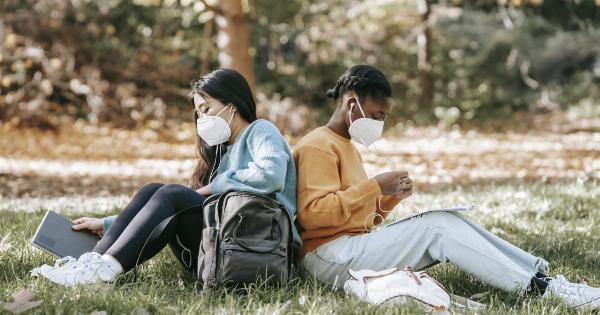Summer is a time for fun in the sun, but it can also bring some health challenges. From sunburns to dehydration, it’s important to take care of your body during the hot and humid months.
This ultimate guide will provide you with all the tips and tricks you need to stay healthy and enjoy your summer to the fullest!.
1. Stay Hydrated
One of the most important things you can do during summer is to stay hydrated. The heat can cause excessive sweating, leading to fluid loss and dehydration.
Make sure to drink plenty of water throughout the day, and if you’re engaging in outdoor activities, bring a water bottle with you. Avoid sugary drinks and alcohol, as they can dehydrate you even more.
2. Protect Your Skin
The sun’s rays can be harsh on your skin, so it’s crucial to protect it from sunburn and long-term damage. Apply sunscreen with a high SPF before stepping outside, even on cloudy days.
Wear a wide-brimmed hat, sunglasses, and lightweight, loose-fitting clothing to cover your skin. Seek shade during the peak hours of sunlight, typically from 10 am to 4 pm.
3. Eat a Balanced Diet
With an abundance of fresh fruits and vegetables available, summer is the perfect time to improve your diet. Opt for colorful produce that’s in season, as they are packed with essential vitamins and minerals.
Incorporate lean proteins, whole grains, and healthy fats into your meals. Avoid heavy, greasy foods that can leave you feeling sluggish in the heat.
4. Stay Active
Don’t let the heat discourage you from exercising. Staying active is important for your overall health and can boost your mood.
Engage in activities like swimming, hiking, or cycling during cooler parts of the day, such as early morning or late evening. If it’s too hot to exercise outdoors, find an indoor gym or try home workouts. Remember to listen to your body and take breaks when needed.
5. Practice Sun Safety
Aside from using sunscreen, protect yourself from the sun’s harmful rays by seeking shade when possible. Use a wide-brimmed hat and sunglasses to shield your face and eyes.
Don’t forget to regularly check your skin for any changes or suspicious moles. If you notice any irregularities, consult a dermatologist promptly.
6. Get Sufficient Sleep
Don’t let long summer nights keep you from getting enough sleep. Aim for 7-8 hours of quality sleep each night to allow your body to rest and rejuvenate.
Create a cool and dark sleeping environment, use a fan or air conditioner if necessary, and establish a bedtime routine to signal your body that it’s time to wind down.
7. Stay Cool
Extreme heat can be dangerous, particularly for the elderly and those with chronic health conditions. Keep your body temperature down by wearing lightweight and breathable clothing.
Use fans or air conditioning at home and work, and if you don’t have access to air conditioning, consider spending time in public places like malls or libraries that are cool. Take cool showers or use wet towels on your neck, wrists, and ankles to cool off.
8. Protect Your Eyes
The sun’s UV rays can also harm your eyes, so it’s essential to protect them. Wear sunglasses that block 100% of UVA and UVB rays to shield your eyes from potential damage.
Look for sunglasses that provide both UVA and UVB protection and fit properly to prevent any sun exposure around the edges.
9. Manage Allergies
Summer allergies can be bothersome, causing symptoms like sneezing, congestion, and itchy eyes. Reduce your exposure to allergens by keeping windows closed, using air purifiers, and regularly cleaning your home.
If necessary, consult with an allergist who can recommend appropriate medications or treatments to manage your specific allergies.
10. Practice Safe Grilling
Grilling is a popular summer activity, but it’s important to do it safely. Start by cleaning your grill thoroughly before each use to prevent any contamination.
Keep a safe distance from the grill while it’s in use, and never leave it unattended. Use separate utensils and cutting boards for raw and cooked foods to avoid cross-contamination. Make sure meats are cooked thoroughly to prevent foodborne illnesses.































